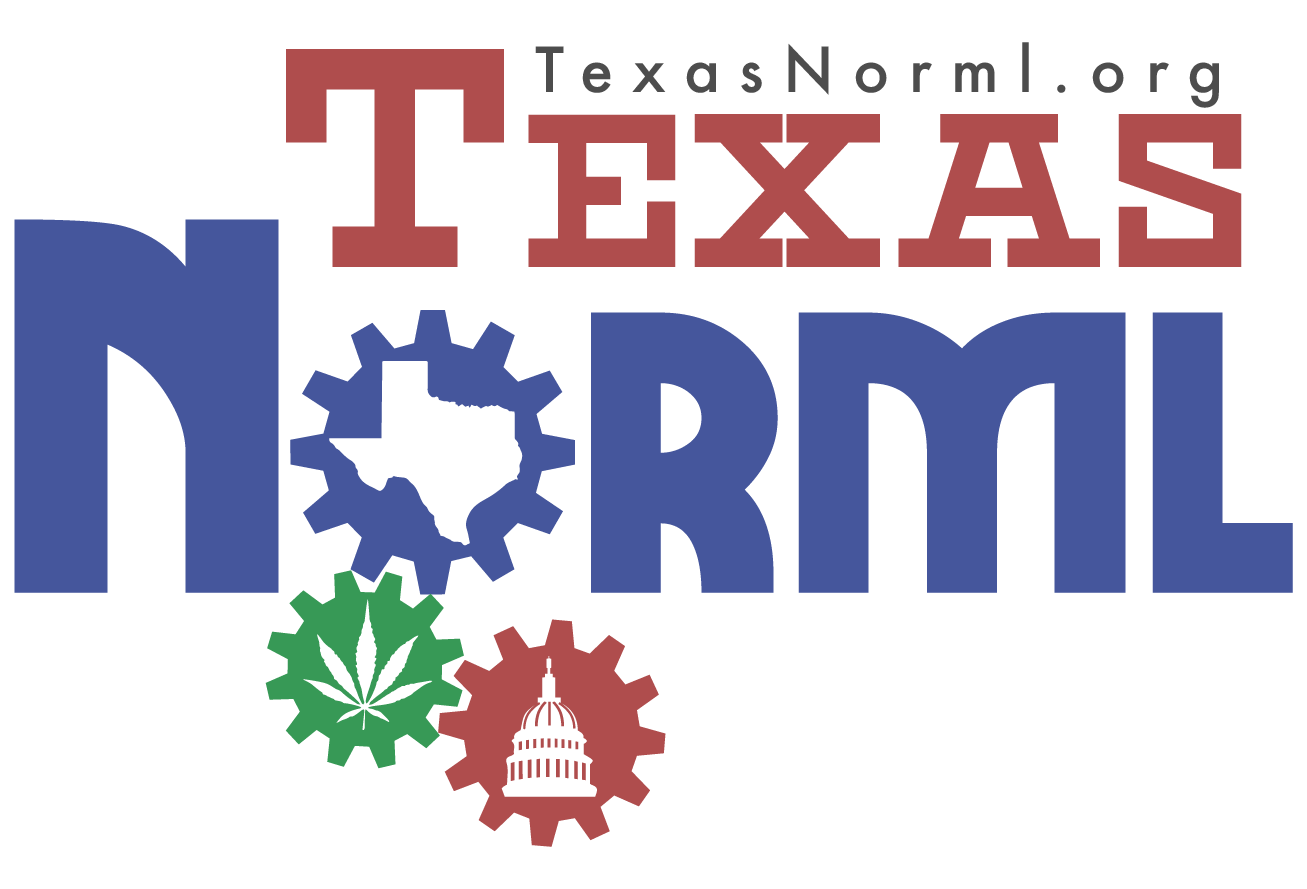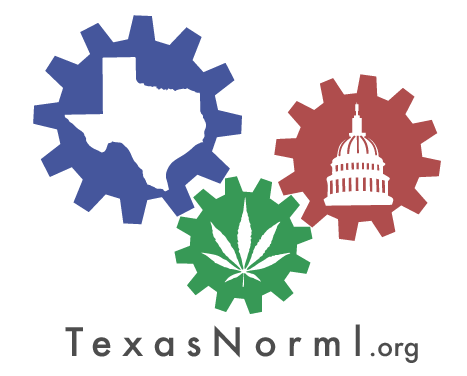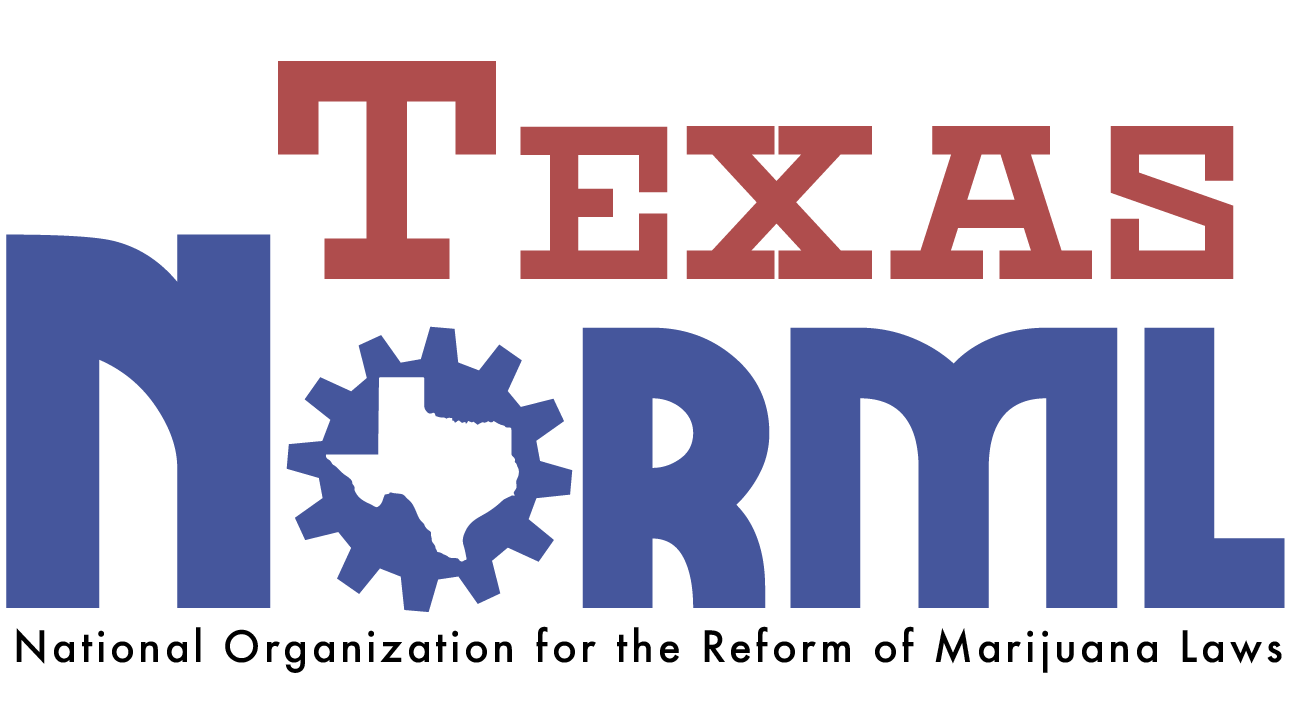TX NORML open meeting notes, June 1st, 2011
During last month’s meeting we covered these stories:
– National NORML Annual Conference in Denver, April 21-23rd
– Cannabis found to significantly reduce pain from multiple conditions including
– Marijuana use associated with superior cognitive performance in schizophrenic patients
– Three quarters of Americans support legalizing medical marijuana in their state
– Montana medical marijuana repeal passes legislature but is vetoed by Gov, while another bill which passed there implements many new, and destructive, regulations
– Federal prosecutors around the country send threatening letters to medical marijuana states
– Washington State’s new dispensary law vetoed by Gov, citing threats from Federal officials
– Hawaii medical marijuana reform bill fails to pass
– Texas Legislative updates, which we’ll discuss later, one more time for this year
Now for news from the past month:
Texas Marijuana March on May 7th
Texas NORML hosted the Texas Marijuana March at the State Capitol on May 7th with a couple hundred people in attendance.
Although the attendance wasn’t as large as in previous years, the speakers were top quality, from all over the country, and the media coverage was more kind than has been in the past.
The night of the march Austin’s Fox 7 News ran a live poll asking should marijuana be legalized, and more than 90% who responded said yes!
Videos are available to watch online, and we’ll have more to come in the next few weeks.
Study Says Inhaled Cannabis Beneficial For Fibromyalgia Patients
According to the results of an observational case-control study published online in the journal, Public Library of Science ONE, the use of cannabis is associated with beneficial effects on various symptoms of fibromyalgia, including the relief of pain and muscle stiffness.
Fibromyalgia is a chronic pain syndrome associated with musculoskeletal pain and fatigue, and it’s symptoms are poorly controlled by conventional medications.
According to the authors, Patients used cannabis not only to alleviate pain but for almost all symptoms associated to FM, and no one reported worsening of symptoms following cannabis use. … Significant relief of pain & stiffness, relaxation and perception of well-being, was observed.
Cannabis users in the study also reported higher overall mental health summary scores than did non-users.
Supreme Court Rules Warrantless Searches Of Homes Are Acceptable If Police Suspect Drugs Are Being Destroyed
The United States Supreme Court ruled, in an 8-1 decision, that Police may enter a residence, without a warrant, if they suspect that illicit substances are present and that those inside are making efforts to dispose of them.
The ruling reverses a determination by the Kentucky Supreme Court that found that the warrantless entry violated protections granted by the Fourth Amendment of the U.S. Constitution.
The Court determined that the smell of marijuana emanating from outside the residence, combined with law enforcement’s testimony that they heard sounds coming from inside the home that they believed to be indicative of the destruction of evidence, were exigent circumstances – thus making the legal requirement of a search warrant unnecessary.
The case in question began when police in Lexington, Kentucky, were chasing a man who sold cocaine to a police informant. The man entered King’s apartment building and ducked into an apartment. The officers heard a door slam in a hallway, but by the time they were able to look down it, they saw only two closed doors.
They didn’t know which one the suspect had gone through, but, smelling the aroma of burnt pot, chose the apartment on the left. But in fact, the suspect had gone into the apartment on the right.
The officers did not have a warrant to enter King’s apartment, but did so anyway.
The only Supreme Court Justice who dissented, Justice Ruth Bader Ginsburg, said her colleagues were giving police an easy way to routinely avoid getting warrants in drug cases.
“Police officers may now knock, listen, then break the door down, never mind that they had ample time to obtain a warrant,” she said.
Montana’s New Restrictive Medical Marijuana Revisions Become Law
Senate Bill 423 intends to reduce total number of state-qualified medical cannabis patients from an estimated 30,000 to fewer than 2,000.
It requires that advising physicians be reported to the state Board of Examiners if they recommend cannabis to more than 25 patients per year. The measure also enacts stricter qualifying requirement for chronic pain patients and prohibits licensed caregivers from receiving any financial compensation for providing cannabis to qualified persons.
The Montana Cannabis Industry Association and various other plaintiffs are challenging the legality of several provisions of SB 423, and a state district judge in Helena temporarily ordered the state not to enforce SB 423?s ban on all advertising of medical marijuana products.
We’ll have more updates on what happening in Montana next month.
Maryland Gov. Signs SB 308 Into Law, Expanding Limited Legal Protections For Medical Marijuana Patients
Under present law in Maryland, patients who successfully raise an ‘affirmative defense’ of medical necessity at trial still face a misdemeanor conviction (but no jail time) and a $100 fine.
SB 308 removes fines and criminal penalties for citizens who, at trial, successfully raise an ‘affirmative defense’ establishing that they possessed limited amounts of marijuana for medical purposes.
As initially introduced, SB 308 and its House companion bill sought to establish a government-regulated program to provide qualified patients with legal access to state-licensed producers and distributors of medical cannabis. However, the measure was rewritten in March after Maryland’s Department of Health secretary publicly testified against it.
Lawmakers are expected to revisit the possibility of regulating the production and distribution of medical marijuana next year, after the issue is further examined by a legislative ‘work group’ of medical, legal, and law enforcement professionals.
Delaware Lawmakers Approve SB 17 To Regulate State-Authorized Use And Distribution Of Medical Marijuana, And Gov. Signs Bill Into Law
The Delaware Medical Marijuana Act, SB 17, amends state law so that patients with an authorized “debilitating medical condition” can possess and consume cannabis obtained from state-licensed facilities. The measure provides for the establishment of at least one non-profit ‘compassion center’ per county that would be licensed by the state to produce and dispense medical cannabis.
Recommending physicians must have “bona fide physician-patient relationship” with a person before recommending the use of medical cannabis. Medical conditions that may qualify for cannabis under the proposal include: cancer, HIV/AIDS, amyotrophic lateral sclerosis, Alzheimer’s disease, and post-traumatic stress disorder, as well as cachexia, chronic pain (if the condition has not responded to previously prescribed medications), severe nausea, seizures or severe and persistent muscle spasms, including but not limited to those characteristic of multiple sclerosis.
SB 17 also provides medical marijuana patients who are not registered with the state to raise an ‘affirmative defense’ motion to dismiss at trial.
Democratic Gov. Jack Markell signed SB 17 into law making Delaware the 16th Medical Marijuana State!
Vermont House And Senate Lawmakers Approve Marijuana Dispensaries Measure, SB 17
Despite last-minute warnings from the U.S. Justice Department alleging that SB 17 would conflict with federal antidrug laws, House lawmakers decided 99 to 44 in favor of the measure, which permits the establishment of four state-licensed medical cannabis dispensaries. Senators had previously approved the measure in April.
Each dispensary would be licensed by the state Department of Public Safety and would be permitted to serve up to 1,000 registered patients.
To date, only the states of Colorado, Maine, and New Mexico have state-licensed medical marijuana facilities up and running. Regulators in New Jersey and Rhode Island have selected applicants to operate similar state-licensed dispensaries, but neither state has allowed those applicants to open their planned facilities. Additionally, permits for licensed medical marijuana businesses are expected to be issued soon in the District of Columbia.
Advocates File Lawsuit Demanding Federal Government Assess Medical Value Of Cannabis
A coalition of public interest advocacy groups filed suit last week in the US Court of Appeals for the District of Columbia to compel the Obama administration to respond to a nine-year-old petition to reclassify marijuana under federal law.
The suit was filed by attorneys Joe Elford of Americans for Safe Access (ASA) and Michael Kennedy of the NORML Legal Committee on behalf of the Coalition for Rescheduling Cannabis (CRC).
The Coalition, which includes NORML and California NORML, filed a comprehensive rescheduling petition with the Drug Enforcement Administration (DEA) on October 9, 2002, challenging marijuana’s Schedule I federal classification as a controlled substance with “no currently accepted medical use” and a “high potential for abuse.”
The agency formally accepted the petition for filing on April 3, 2003, and per the provisions of the United States Controlled Substances Act (CSA) referred the petition to the U.S. Department of Health and Human Services (HHS) in July 2004 for a full scientific and medical evaluation.
To date, the federal government has not publicly responded to the petition.
The lawsuit petitions the Court for a writ of mandamus “directing the DEA and the Attorney General to issue a full and final determination on petitioners’ Petition to reschedule marijuana, or, alternatively, state whether it will initiate rulemaking proceedings, within 60 days.”
It also states: “The DEA’s delay here of more than eight years since the rescheduling Petition was filed — and more than four years since it received HHS’ binding evaluation and recommendations — is inexcusable. … [T]his agency delay in acting on the rescheduling Petition is unreasonable, requiring this Court to intervene.”
Under the CSA, the Attorney General has the authority to reschedule a drug if he finds that it does not meet the criteria for the schedule to which it has been assigned. The Attorney General has delegated this authority to the Administrator of the DEA, presently Michelle Leonhart, whom we have talked about many times over the past few years.
The 2002 CRC petition seeks to reschedule cannabis from its Schedule I designation to a less restrictive class under the CSA “on the grounds that:
(1) marijuana does have accepted medical uses in the United States; (2) it is safe for use under medical supervision and has an abuse potential lower than Schedule I and II drugs; and
(3) it has a dependence liability that is also lower than Schedule I or II drugs.”
NORML filed a similar rescheduling petition with the DEA in 1972, but was not granted a federal hearing on the issue until 1986.
In 1988, DEA Administrative Law Judge Francis Young ruled that marijuana did not meet the legal criteria of a Schedule I prohibited drug and should be reclassified.
Then-DEA Administrator John Lawn rejected Young’s determination, a decision the D.C. Court of Appeals eventually affirmed in 1994.
A subsequent petition was filed by former NORML Director Jon Gettman in 1995, but was rejected by the DEA in 2001.
The Federal Government already knows that marijuana is a safe and medically useful substance, and the proof is in the Compassionate Investigational New Drug Program, begun in 1978, which allowed a very limited number of patients to get marijuana, grown at the University of Mississippi for the Federal Government, to treat certain medical conditions.
At it’s peak, the program had 30 active patients, but was closed to new patients by Pres. George H.W. Bush in 1992.
Now there are only 4 remaining patients, but they still continue to receive up to 9 ounces of federally grown marijuana per month.
Any court who looks at these facts, and the multitude of medical studies on marijuana, should be able to rule in favor of marijuana legalization, but the DEA continues to block and stall.
The Industrial Hemp Farming Act of 2011, has been re-introduced by Rep. Ron Paul and a coalition of 25 co-sponsors
House Bill 1831, would exclude low potency varieties of marijuana from federal prohibition. If approved, this measure will grant state legislatures the authority to license and regulate the commercial production of hemp as an industrial and agricultural commodity.
Several states — including North Dakota, Montana, and Vermont — have enacted regulations to allow for the cultivation of hemp under state law. However, none of these laws can be implemented without federal approval. Passage of HR 1831 would remove existing federal barriers and allow states that wish to regulate commercial hemp production the authority to do so.
The “States’ Medical Marijuana Patient Protection Act” has been re-introduced by Rep. Barney Frank and a coalition of several of co-sponsors
House Bill 1983, would ensure that medical cannabis patients in states that have approved its use will no longer have to fear arrest or prosecution from federal law enforcement agencies. It states, “No provision of the Controlled Substances Act shall prohibit or otherwise restrict in a State in which marijuana may be prescribed or recommended by a physician for medical use under applicable State law.”
It also calls for an expedited rescheduling review by the federal government that would reclassify cannabis fromSchedule I to Schedule III under the federal Controlled Substances Act, recognizing the plant’s accepted medical use and streamlining the federal approval process for medical marijuana research.
16 states, and the District of Columbia, have enacted laws protecting medical marijuana patients from state prosecution.
Alaska, Arizona, California, Colorado, Delaware, Hawaii, Maine, Michigan, Montana, New Jersey, New Mexico, Nevada, Oregon, Rhode Island, Vermont, Washington
Yet in all of these states, patients and providers still face the risk of federal sanction — even when their actions are fully compliant with state law.
And, of course, in recent months the Federal government has dramatically stepped up it’s harassment and threats of medical marijuana in many of those states.
Texas’ 82nd Legislature Finale
Neither of the bills we were focusing on made any significant progress.
HB 548, which would have decriminalized an ounce or less of marijuana, of course, had a public hearing, which is good, but without a committee vote it was dead in the Criminal Jurisprudence Committee, despite thousands of calls and letters of support sent by Texans.
HB 1491, which would have given medical marijuana patients an affirmative defense, and protected their doctors, didn’t even get a public hearing scheduled in the Public Health Committee, despite thousands of calls and letters in support being sent by Texans.
It is discouraging, to say the least, to see these being completely ignored in the face of such great support from Texans, so the only way for us to make a real difference during the next Legislative session is to replace a large percentage of the politicians serving as Texas Representatives and Senators, all the way down to the local levels.
You MUST vote for candidates who will support these measures, or Texas laws will not change.
Guest speaker, Amy??
Upcoming Events & Announcements
We don’t have any officially scheduled events before our next monthly meeting, which will be on Wednesday, July 6th.
On Saturday, July 30th, Texas NORML will be sponsoring The Austin 420’s 2nd Anniversary Bash, at the Red Eyed Fly, with music from Broken Teeth, Snake Skin Prison, and Powderburn.
Also, I’d like to announce that The Austin 420’s publisher and creative force, Vincent Lopez, has been elected to serve as an officer for Texas NORML, as the Patient Liaison to the Medical Marijuana Community.
Vincent, despite being wheelchair bound with muscular dystrophy, has worked tirelessly on his publication, The Austin 420, and has been implementing more information in that regarding medical marijuana and legalization. He has already landed interviews with people such as Oaksterdam’s Richard Lee, and the Exec. Director of Harborside Health Center, Steve DeAngelo.
So,
We have officially hit a lull in the action, and I’m sure many of our core group are thankful for that; it has been a hectic, non-stop spring.
I would like to express my thanks, gratitude, and pride, for the Texas NORML Board of Directors, Officers, volunteers, and supporters, who made this the busiest spring for our organization in memory.
Despite the defeat of the bills, we can say for a fact that more people were involved with this than we’ve ever seen, and we have a great base to work on for the next couple years.
So, please stay in touch with us, stay supportive, and keep talking to everyone you know about this issue.
We need you!
Questions or Comments/anything left out?
Meeting adjourned



